
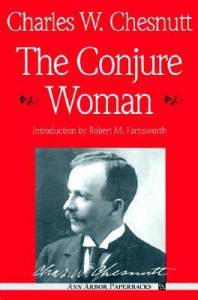




An entertaining minor book. In particular it has a suspense plot that's actually suspenseful, and with Folie, a charming heroine who has a gift for seeing the humor in everything (even in the middle of her wedding with a man she's sure hates her, a stray thought makes her smile) and a way with a quick word of reply that saves the situation multiple times. And everything about Robert playing the part of a charlatan-psychic was purely delightful.
The things I didn't so much love were what maddens me about 99% of romances (and yet I keep reading them). The hero hews too much to codes of romance-masculinity -- funny that we've reached a time when a heroine in the genre can be just about anything, but the requirements for a proper hero are far narrower, and therefore, necessarily, this limits the ways the two of them can interact too. Once again in My Sweet Folly, we have a hero who may be terrified inside, but must act with a properly manly hardness, which means hurting other people and frankly being a jerk; and who must be masterful and protective (even if he needs to overcome fears to do so); and who requires the heroine to be practically a genius to guess at his carefully hidden pain, and therefore forgive his jerk behavior. Admittedly, this book is a better-than-average specimen of its type, and the hero really does understand what's wrong with his behavior, but the fact remains that in the vast majority of romances, there is only a very narrow range of ways that a man can act and still be properly manly, and this book barely deviates from them. It also carries on the harmful myth of the vaginal orgasm as ultimate goal and sign of true love. Oh well, take the good with the bad and it's still enjoyable...

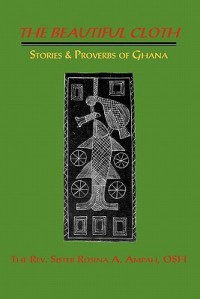
A fairly interesting collection of "Ananse stories" (as they call all folktales in Ghana, whether they star the spider or not). Sadly, the author isn't as skilled a storyteller/writer as many others, and her tales can drag. But what's particularly striking is the eclectic nature of what's included here, all manner of genres. The author uses them for teaching in her sunday school and she's pulled in any material she thinks appropriate, including at least one that she must have gotten from a sunday-school instruction book, and also a retelling, in a Ghana setting, of the story of Pandora. It's a fine example of the living nature of the tradition: why shouldn't any story told by someone from Ghana, whatever the ultimate source, be an Ananse story?



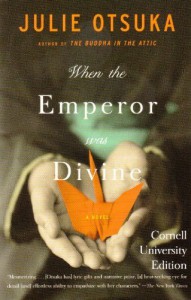
I read this book in less than two days. I was in two minds about it. I became quite interested in the three characters whose points of view form the first three chapters, and who are gradually revealed through a sparse accumulation of details; the two children, and especially the mother, attempting to find a way to fit into a land that they thought was theirs and which has suddenly turned utterly hostile. But the fourth chapter, although depicting the most overt racism and suffering, is narrated supposedly by both children; they were very different in the preceding chapters, so this erasure of their individuality has an effect I don't like -- I don't trust the generalizations about them because I already know that they perceive things differently. The fifth, shortest, chapter is different yet again, and is a literary summing-up and angry denouncement of the themes of the book. It's effective, but perhaps too late to lend unity to what has been a bit meandering up to then?

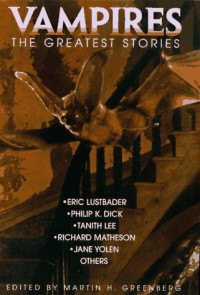

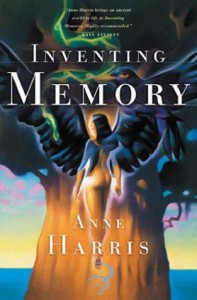
Entertaining (even though part of it turns out to be a lengthy shaggy-dog story) and moving meditation on what it would take to make the future a better world. The story centers on the lives of main characters Wendy and Ray as they search for this, and the wrong turns they make along the way. The science-fictional device of a virtual-reality world plays a large role here, since one of the paths that Wendy investigates is ideas about ancient matriarchies, and she immerses herself in a simulation of ancient Sumeria and its myths for this reason; the simulation turns out to be a key for her (and for Ray) in an unexpected way.

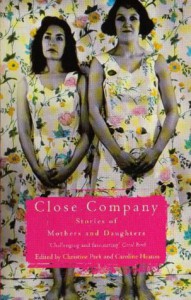
I enjoyed this very much! Even the stories that were depressing were good to read (a bit surprisingly, the grimmest was also the oldest, "An Everyday Story" from 1884). But overall there was a warmth to the collection, but not sentimentality, the very last story skirting closest to sentimentality. There were subtle examinations of the things that mothers and daughters learn from each other; tales of rebel daughters, of course, and a rebel mother in the comic story "Meet My Mother"; a trio of depictions of the crushing burden of domesticity and marriage, with the women in the first two sinking and the third walking out of her life with magnificent anger ("Virgin Soil"). Some standouts in my mind include Janet Frame's "Swans", two very young children whose perceptions of their mother contrast with her own worries; "Given Names" by Sue Miller, which doesn't seem very distinguished superficially, but wouldn't go out of my head; "Everyday Use" by Alice Walker, with the narrator's personality and experiences revealed in every sentence, and a contrast of worldviews between the stay-at-home daughter and the mover-and-shaker; some typically vivid writing by Jeanette Winterson; "Honor Thy Father and Thy Mother" by Judith Chernaik, which was very painful but true -- well really most of the stories were very good.


I really respect what the author's trying to do here, toward breaking historical romance's gender stereotypes, even if the book isn't an entire success (and contains a few wince-worthy sentences, but they are of a sort that again, are failures due to over-boldness, which isn't entirely a bad thing).


Rather heavy-handed in emphasizing the bad treatment of women in traditional Turkish society. Every time she'd write something about honor, I'd think, yeah, but you already said that three times... Too bad, because I really liked her other books; The Bastard of Istanbul had strong social criticism too, but subtly wrapped in a satisfying story, balanced with artistry. I attribute it to not trusting her audience: you see, even though she'd written some of her other books in English, this was the first one that she barely even expected people in her native land to want to read (discouraged by extreme negative reactions?) So it's addressed to outsiders first and foremost; too bad that this led to what I think of as miscalculation in hitting us over the head with the message for fear we won't get it.
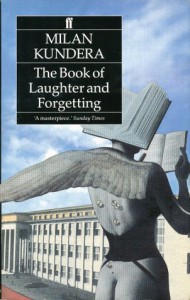
It is difficult to write a coherent note about a novel as complex as this one. Is it even a novel? At a casual glance you'd think not... The chapters are so varied in form, and most of them don't even have any characters in common. The author himself states, however, that the book is an exercise in theme and variation like Beethoven's Op. 111 sonata; and that it is a novel whose main character is Tamina (who appears in person in only two chapters). Tamina is exiled from Czechoslovakia in the wake of the Russian invasion -- the invasion that forms the political background of the entire work. It is a massacre of memory, says Kundera, a purge of historians and history books, and for that reason profound enough assault on Czech identity to make him fear that the nation may be dying... The novel is haunted by forgetting and death. Tamina forgets her husband, the loss of her past leaves her stranded, and when she is offered a chance to move forward to a place without burdens, it is only a horrific death.
As for the other component of the title, laughter? Doesn't laughter sound like a good thing? Not here; there are two kinds of laughter, says Kundera, and this novel is concerned with the laughter of the angels, which is a facsimile of the real thing, and a mark of conformity, infantilization, weightlessness. There are various kinds of sex in this book, too, and it is mostly concerned with the wrong kinds.
I did enjoy reading this, quite a bit. I intend to return to the author when I can.

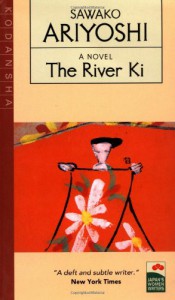
This novel opens in 1897, as its main character, Hana, marries into the Matani family of Wakayama Prefecture. She is moving downstream along the river Ki, as her grandmother insists it is proper for a bride to do. Hana's convictions about her duties are clear: to serve her husband and his family's interests, subsuming herself and leaving her old life, including her grandmother. This she will do with great energy and skill, promoting her husband Keisaku's political career and agricultural projects behind the scenes. But all does not go well with the Matani family, landowners from an old samurai lineage. Times are changing, and furthermore, no male members of the family is able to be a fit successor to Keisaku.
But gradually, another pattern emerges in Hana's life, one that was not part of her traditional values. She sees her grandmother's spirit in her rebellious daughter Fumio, and her granddaughter Hanako, in turn, feels a connection to her. There is a whole line of strong-willed women, and even though the way they live changes so much that Hana's aesthetics, manners, and values seem quite foreign to the younger generation, still there is a connection. During the disastrous period of WWII, Fumio points out, people turned to their mothers' families for support, and says that matrilineal families are natural. Indeed, the matriline is surviving quite well at the end of the novel, after the total downfall of the patrilineal Matani family.
The final page returns to the metaphor of the river Ki: Hanako notices that it remains green as it flows downstream, like the continuity of the women who've married downstream along it, and that it merges into a vast and changing ocean, like the wide-open possibilities in front of Hanako in an unfamiliar postwar world.

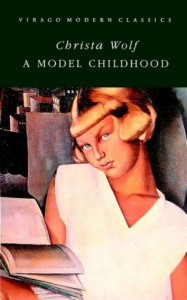
When Christa Wolf set out to novelize her childhood during National Socialist days, in Landsberg (East Prussia), she didn't just narrate the experiences of young "Nelly Jordan". No, the story is incessantly interrupted, and commented on, by an account of an alter-ego of the author revisiting Landsberg (now, as part of Poland, renamed Gorzów) in 1971, writing the book, and struggling with memory. The intellectualizing and distance thus created is undoubtedly necessary for the author's purpose; for me, though, it turned reading the book into a bit of a slog. I wasn't in the mood for something quite as dry and dense as this. And the author's analytical attitude toward Nelly (she actually thinks she is being invasive in examining the child so closely, and says that she is doing her a wrong but by necessity) forbids close emotional identification with her. For that reason two other characters (who are also investigated but not with such fierce completeness), Nelly's mother Charlotte and the writer's daughter Lenka, struck me as more "pleasant" to read about -- that is, they're interesting without also having something repellent about them as Nelly is made to have.
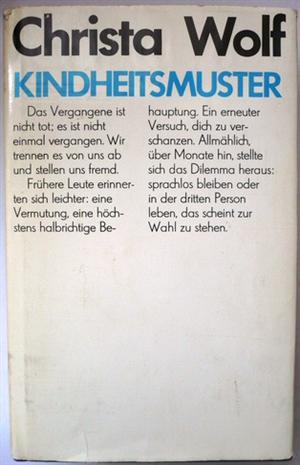
I read the novel in German, referring to the English translation now and then. I was dismayed to notice that it's a very poor translation. Not just that the translator made the questionable choice to often replace German proverbs and cultural artifacts with American "equivalents"; for example, you may be startled to find a schoolchild reciting the Mother Goose rhyme "To market, to market..." -- in the original it's a rhyme beginning "My mo-, my mo-, my mother sent me here..." (and by lack of contrast we'll miss noticing that Lenka, modern child, actually does sing songs in English). But more, the translation from the German is often extremely sloppy or wrong. Just one example: During a passage very much concerned with Nelly's relationship with her mother, we find "Nelly... gewöhnte sich das Weinen beinahe ab.... Das wurde anerkannt, übrigens auch von ihrer Mutter." translated as "Nelly... gave up crying almost for good.... This was much appreciated." Why did the final phrase, which should be "...appreciated, incidentally also by her mother", seem irrelevant?
This book could certainly benefit from a retranslation. However, even though it's an important literary monument, especially in its home country, I don't think it's the kind of thing that could ever find a very large audience elsewhere -- just not a mass market novel (not that that's a bad thing).

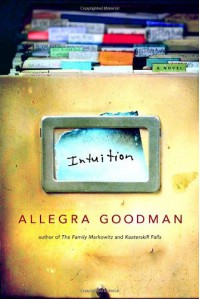
I read a bunch of reviews and reactions to this book, and was struck by their enormous diversity, almost every one finding some different aspect of the book to highlight. That is surely the mark of an exceptionally rich novel. I can't add much, except to note that I'm pleased by the fact that the author wasn't afraid to include feminist commentary, something that only a few reviewers remarked on -- better that they should absorb it without noticing than that they should defensively reject it, that's for sure. Most of it is pointed out quite subtly, and in at least one case the subject of sly humor: when depicting Sandy's bullying treatment of his wife and daughters, talking over them and refusing to recognize any ambition that's not an extension of his own, she has him be especially shocked that one daughter wants to go into women's studies: "No one had ever dreamed of majoring in women's studies when Sandy was in college." Another example of her subtly amusing touches concerns the lovers-turned-enemies Cliff and Robin; Robin makes the discovery that irrevocably pits her against him on the way back from a wedding, leaving behind the white roses from her bridesmaid's dress, and Cliff later throws the smelly wilted bouquet in the trash. Character insights (sometimes a bit baldly stated) and beautiful tributes to the joys of research brighten the book. I did, however, skim over some of the parts concerning lawyers and politicians -- that was not the strong point.

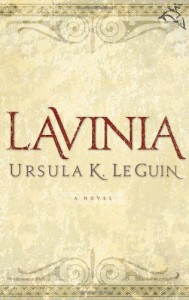
Inspired (as the afterword details) equally by the poetry of the Aeneid and by the ancient Roman religion, this book is an astonishing, exhilarating work on history, ritual, kingship, literature, and more -- kept surprising me, right up to the last page.
Lavinia is a character who in the Aeneid is nothing more than a name and a few entirely clicheed gestures, but in this novel, that gives her the freedom to live her own life in the midst of the story that is told. But actually she is a teller too -- she shapes the story like the poet does, but her language is ritual. She is a perfect match for "pious" Aeneas, and she is if anything more deeply rooted in religion than he is; she has a sense of awe for the great powers in the world, and she appreciates how ritual defines space, time, and relationships, and has the power to actually make things happen.
The history of Rome, in this view, is laid down by destiny or by the powers, and Lavinia and other characters respect that; but actually making this history happen is so to speak a collaborative project between Lavinia and the poet. Le Guin thinks that the tragedy of Aeneas is that he has this sense of religious inevitability too, of the way things must be, but thinks that is not necessarily a good thing -- that the way things must be is often not morally good.
Needless to say the prose is beautiful; worth savoring.

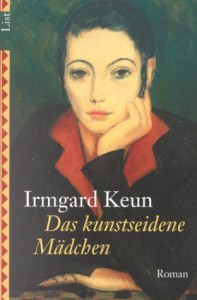
Most, most excellent. I really felt for the determined, observant, and trapped protagonist Doris. With very little education, she finds herself on the wrong side of an impermeable social barrier; people with power consider her insignificant, and although she can use sex to make men notice her a little, they still mostly disregard her. Her cutting observations of a society deeply divided, stressed by unemployment and corruption, are memorable, and her character notes too.